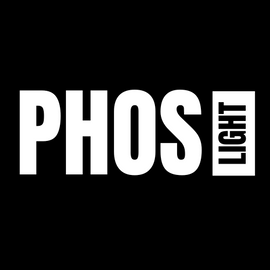RESOURCES
LED lighting has revolutionized the way we illuminate our homes, offices, and public spaces. With its energy efficiency, long lifespan, and versatility, LED lighting has become the preferred choice for many consumers and businesses. In this resource page, we will explore the benefits, applications, and considerations of LED lighting.
The Benefits of LED Lighting
LED lighting offers numerous advantages over traditional lighting technologies:
- Energy Efficiency: LED lights consume significantly less energy compared to incandescent and fluorescent lights. They can reduce energy consumption by up to 80%.
- Long Lifespan: LED lights have a much longer lifespan, lasting up to 25 times longer than traditional bulbs. This reduces the need for frequent replacements and maintenance.
- Cost Savings: Due to their energy efficiency and long lifespan, LED lights can result in substantial cost savings over time, both in terms of energy bills and replacement costs.
- Environmentally Friendly: LED lights do not contain hazardous materials like mercury, making them safer for the environment. Additionally, their energy efficiency helps reduce carbon emissions.
- Instantaneous Lighting: LED lights provide instant illumination without any warm-up time, unlike some other lighting technologies.
- Design Flexibility: LED lights come in various shapes, sizes, and colors, allowing for creative lighting designs and customization.
Applications of LED Lighting
LED lighting finds applications in a wide range of settings:
- Residential Lighting: LED bulbs are commonly used in homes for general lighting, task lighting, accent lighting, and decorative lighting.
- Commercial Lighting: LED lights are widely used in offices, retail stores, hotels, and other commercial spaces for energy-efficient and high-quality lighting.
- Outdoor Lighting: LED lights are ideal for outdoor applications such as street lighting, parking lot lighting, landscape lighting, and security lighting.
- Industrial Lighting: LED lights are suitable for industrial environments due to their durability, reliability, and ability to withstand harsh conditions.
- Specialty Lighting: LED lights are used in specialized applications such as automotive lighting, stage lighting, signage, and underwater lighting.
Considerations for LED Lighting
When choosing LED lighting solutions, there are a few important factors to consider:
- Color Temperature: LED lights are available in different color temperatures, ranging from warm white to cool white. The choice depends on the desired ambiance and lighting requirements.
- Light Output: Consider the desired brightness level and lumens output when selecting LED lights for a specific space or application.
- Compatibility: Ensure that the LED lights are compatible with existing fixtures and electrical systems to avoid any compatibility issues.
- Dimming Capability: If dimming functionality is required, choose LED lights that are compatible with dimmer switches.
- Quality and Warranty: Opt for LED lights from reputable manufacturers that offer warranties to ensure product quality and reliability.
LED lighting is a smart and sustainable choice for all your lighting needs. Whether you are looking to upgrade your home lighting or enhance the lighting in your commercial space, LED lights provide superior performance and energy efficiency. Explore our wide range of LED lighting products to find the perfect solution for your requirements.
